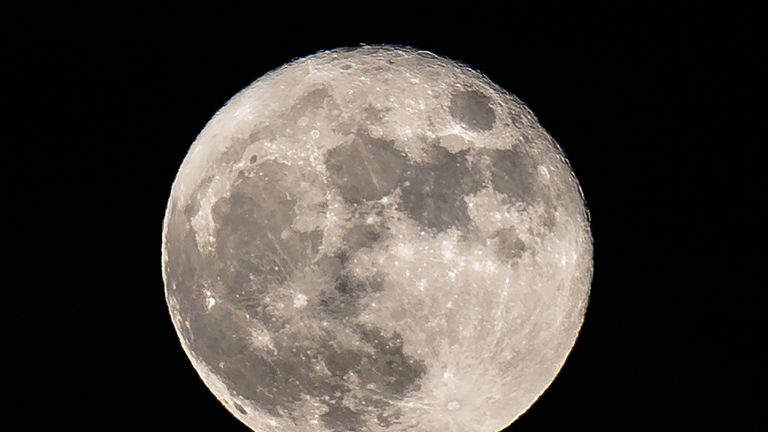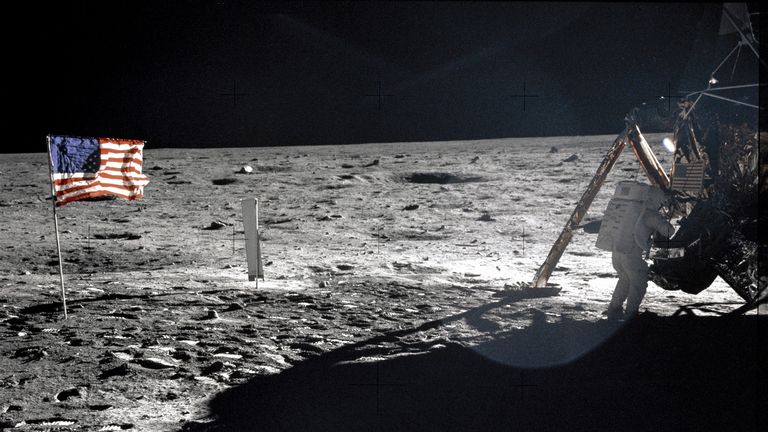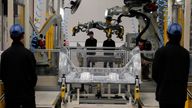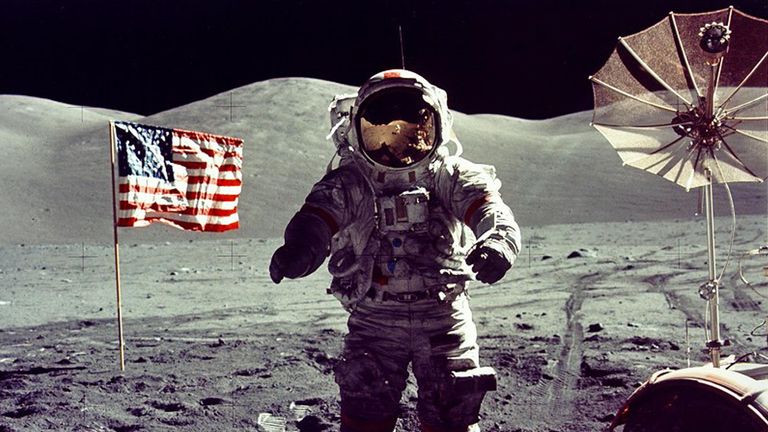China and Europe discuss plans for first human outpost on the moon
The ESA says the proposed "Moon Village" could be a potential launch site for future missions and help develop space tourism.
Thursday 27 April 2017 09:13, UK
The European Space Agency and China are discussing a potential collaboration for a human base on the moon.
The talks about a possible lunar outpost were first disclosed by the secretary general for China's space agency, Tian Yulong, and have now been confirmed by the ESA.
"The Chinese have a very ambitious moon program already in place," spokesman Pal Hvistendahl said.
"Space has changed since the space race of the 60s.
"We recognise that to explore space for peaceful purposes, we do international cooperation."
The director general of the ESA, Johann-Dietrich Woerner, described the proposed base as a "Moon Village" and said it could be a potential launch site for future Mars missions.
He said it could also provide the opportunity to develop space tourism or lunar mining.
The China National Space Administration launched an unmanned spacecraft to dock with their space station, which is currently unoccupied, last week.
The administration has ambitious plans for the next two years, aiming to launch a mission to collect samples from the moon in 2017 and carry out the first mission to the moon's far side next year.
The ESA hopes to conduct analysis on samples bought back by this year's mission, which is known as Chang'e 5.
They also are hoping to have a European flying on the Chinese space station in the future, Mr Hvistendahl said.
China arrived relatively late to space travel, only conducting its first manned spaceflight in 2003, but its space programme has expanded rapidly since then.
They were excluded from the International Space Station due to US legislation banning such cooperation and concern over their programme's strong links to the military.





